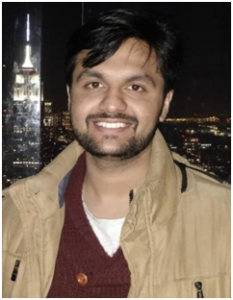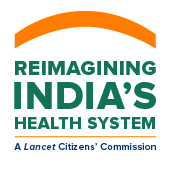In Conversation: Siddesh Zadey, Co-founder, Association for Socially Applicable Research (ASAR – असर), Pune, Maharashtra, India
August 09, 2022

I did my undergrad and first masters in neuroscience, which gave me this fantastic opportunity to go to any lab in the world to do my thesis work. So, I was lucky to go to a non-invasive brain stimulation lab that Dr. Pascual-Leone conducted at Harvard Medical School. With him and other people in the lab, I worked for a year on cognitive decline in people with dementia. I examined whether some brain stimulation techniques could help determine biomarkers for cognitive decline in Alzheimer’s dementia. When I returned to India, I volunteered for some time with an organization in tribal Gadchiroli called the Society for Education Action and Research in Community Health. They are running an ambitious and fantastic de-addiction clinic for people with alcohol use, tobacco use and other problems. The idea was to see if brain stimulation could be translated to such a region. But, of course, it comes with many legal and ethical barriers to doing something like that because experimental treatments are difficult to run in tribal areas in India. But that whole experience was crucial in pushing me towards research in health systems. I returned to the US to get a second master’s in global health at Duke University. After graduating, I am now working at Duke Surgery & Emergency Medicine. In our lab, I work with a small team of undergrads on alcohol use from a translational and neuroscience perspectives. I also work on health system access and global surgery innovation.
People like the traditional model for public health interventions or public health knowledge creation in India where people conduct surveys and randomized control trials. A problem with that traditional model is that it misses many links in between. For example, scaling up positive results from a research trial to a national-level program requires a lot of steps in between. Plus, you cannot run trials for understanding all problems due to ethical and economic issues. India needs a lot of good data collected at the national level. The national sample service, done by the Indian statistical institute, from the new studies or even the traditional demographic help surface. However, a large chunk of this data is not being put to good use. So we came up with the idea of creating an NGO involving data-driven local policymaking to harness the existing data before jumping to collecting new data and using that data to develop insights. Our work has been covered and published in Lancet Global Health, BMJ Global Health, and others places. Interest in data science for social good is how I connected to the Commission. I saw that one of the work streams was Human Resources for Health (HRH).
Siddhesh Zadey: Regarding India’s overall financial portfolio, there is less focus on public spending in different areas such as health workforce, surgical care, mental health and tribal health. We need extensive expenditure to enhance our developmental health performance. We also need to ensure that we have suitable mechanisms for investing that money and a robust rationalization of allocation. We not only need to spend more but we also need to be cautious about how we spend our money. For instance, some of our research has looked at the distribution of healthcare workers across rural and urban areas. About 65% of India’s population still lives in rural areas, but we have less than one-third of our healthcare workers caring for them. Therefore, when it comes to human resources, there is a massive unequal distribution across rural and urban regions. It’s also there in public and private sectors.
My hope from the Commission is to act as a one-click or a primary go-to resource for policymakers, researchers and bureaucrats to access high-level evidence which can directly impact and influence policy. The hope is for the Commission to provide a platform for a solid public discourse for health rights with some of the Commission’s work being used to inform the policy. We can generate momentum amongst the public, where people start asking crucial questions to the representatives.
